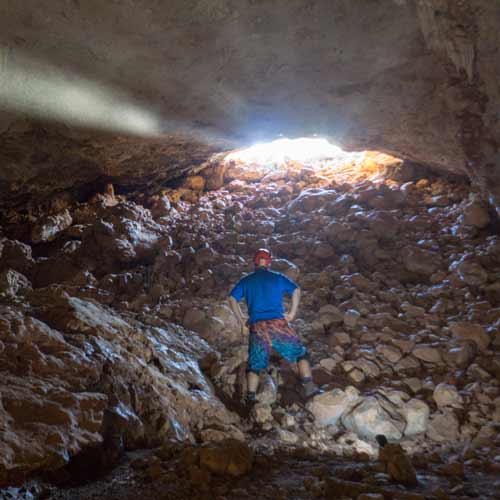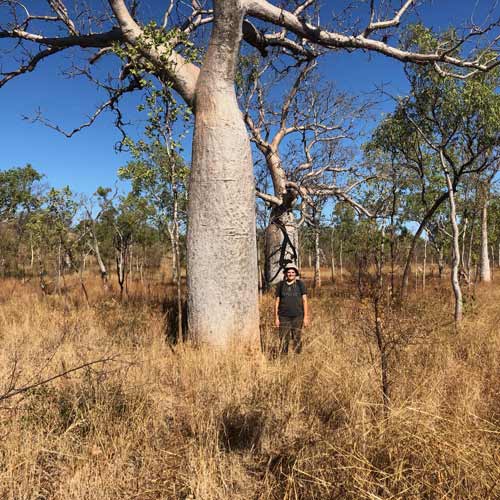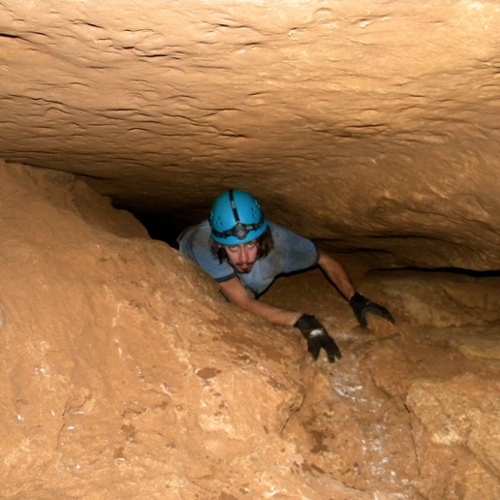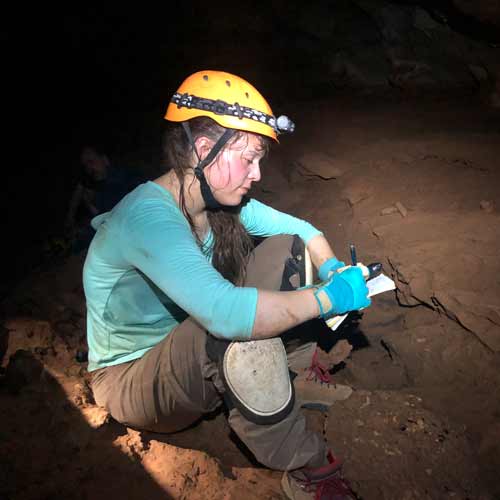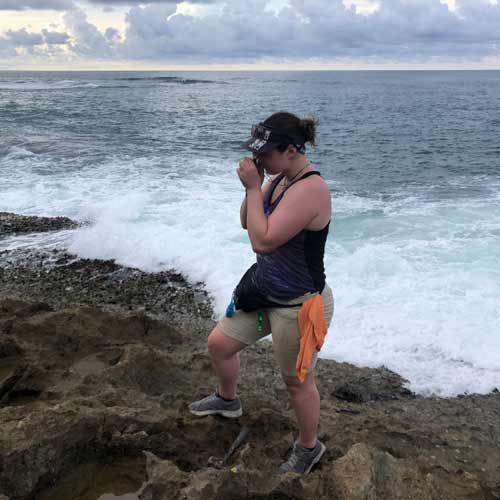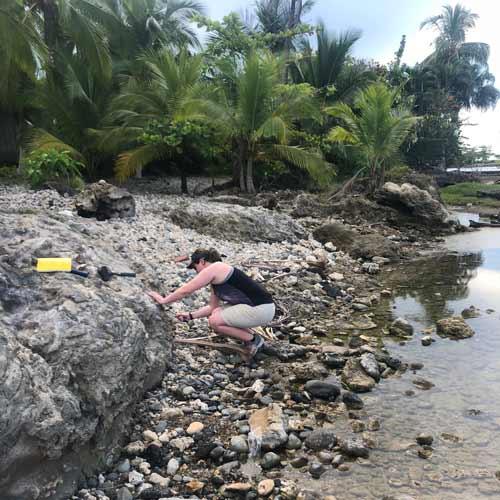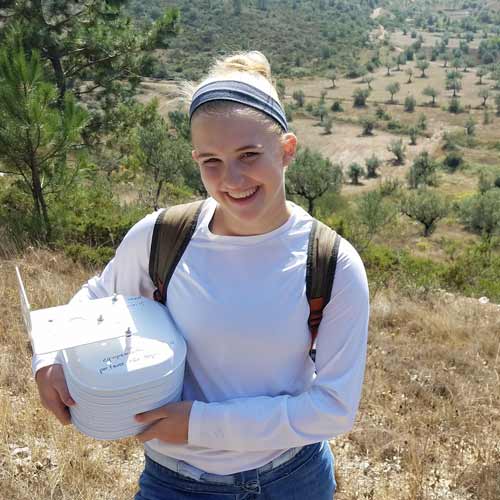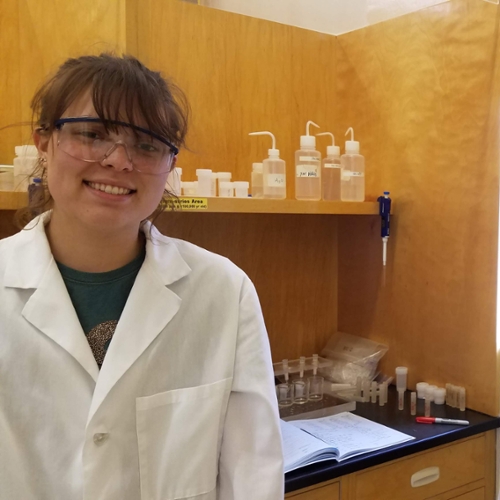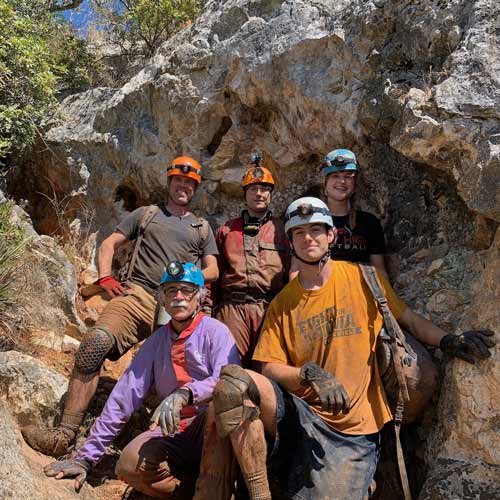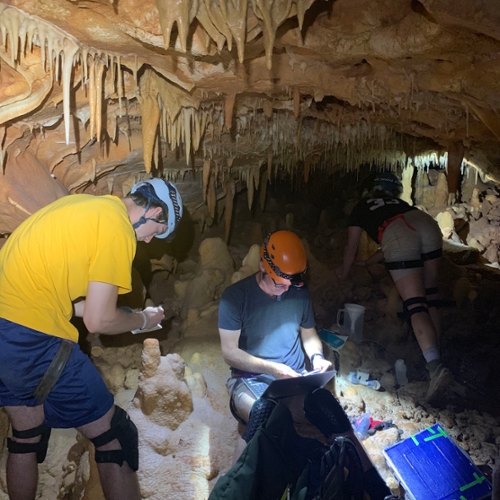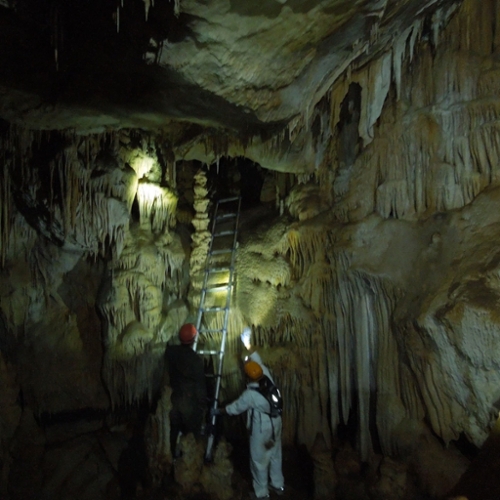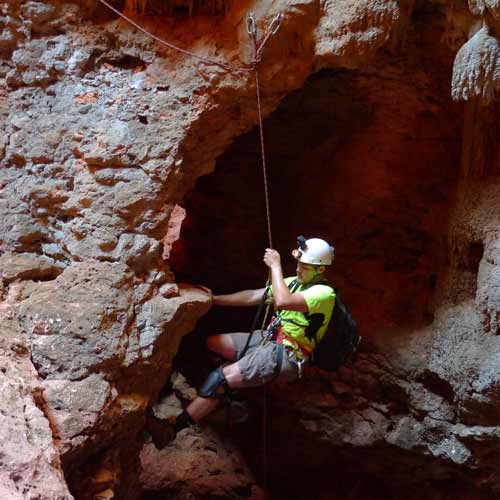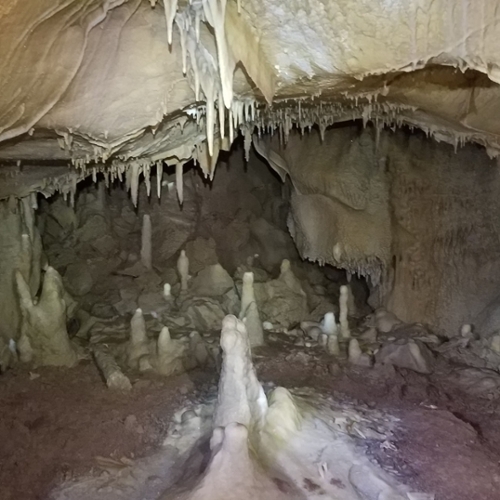-
Looking toward the entrance of an Australian cave used to reconstruct past hurricane activity.
-
A Cornell College student stands next to a boab tree in the Australian tropics while conducting paleoclimate fieldwork.
-
A Cornell College undergrad student squeezes through a cave passage in Australia.
-
A Cornell College student takes notes about environmental conditions as part of a National Science Foundation-funded research project in northern Australia.
-
A Cornell College student uses a hand lens to examine fossil coral samples in Costa Rica.
-
A Cornell College student collects fossil coral samples in Costa Rica in order to better understand ocean acidification in ancient greenhouse worlds.
-
A Cornell College student with data loggers outside a Portuguese cave.
-
A Cornell College student performs chemical separations at the University of New Mexico isotope laboratory.
-
Two Cornell College undergraduate students with Portuguese cavers and Professor Rhawn Denniston after some muddy cave work in Portugal.
-
Two Cornell College students with Professor Rhawn Denniston make scientific measurements in a Portuguese cave.
-
A view of Cornell College students in a loft of a Portuguese cave.
-
A Cornell College student rappels down a 100-foot shaft into an Australian cave.
-
Stalagmites used in paleoclimate research.
A field of study for humankind's greatest challenge
The greatest challenges we face as a society arguably all involve human impacts on our environment. Since the start of the 20th century, massive population growth and rising standards of living have resulted in unsustainable demands on our atmosphere, oceans, aquifers, and mineral resources.
Through our sustainability, climate change, and geology minor, you will investigate the origins of these problems, how they impact past, current, and future societies, and what changes need to be adopted in order to solve them.
The sustainability, climate change, and geology minor is composed of seven courses, including:
- deep dives into climate change: causes, rates of change, trajectories, and impacts on human society
- water resources: distribution, availability, movement, and contamination
- mineral resources: origins, environmental impacts of extraction, applications
- life: species diversity past and present, impacts of environmental change on ecosystems, rates of change
View the course listings.

